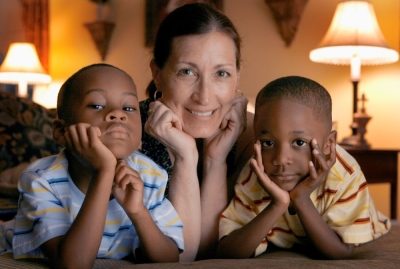Connecting Healthy Timing and Spacing of Pregnancies and Orphans in the Developing World

Those of us who care deeply about human needs often speak as if the one issue we're most passionate about stands alone: hunger, AIDS, poverty, governance, trafficking. We have fallen into that trap at times, too. But here's a vital truth we can't ignore: just beneath the surface, pressing human needs are intertwined. So any aid or development effort that fails to reflect this truth will most always fall flat.
Let's make this personal. Jedd Medefind leads the Christian Alliance for Orphans, working to see orphaned and vulnerable children well cared for around the globe, and Jenny Dyer directs the Faith-Based Coalition for Healthy Mothers and Children Worldwide and Senator Bill Frist, MD's Hope Through Healing Hands, which seeks to empower women in the developing world to better time and space their pregnancies.
Many would see these as widely differing undertakings. That couldn't be further from the truth.
Let's start with this question: "What causes a child to end up an orphan in the first place?" Of course, there are myriad roots to what UNICEF has called the "global orphan crisis" – from disease and disaster, to abuse by parents, to adults feeling forced by poverty to abandon their children. These vexing problems defy simple solutions, so caring for orphaned children will likely remain an immense need for decades to come.
But it is also clear that if these causal factors can be reduced, the number of future orphans can be significantly decreased. Consider the fact that pregnancy and childbirth are the leading cause of death for girls age 15-19 worldwide. Yet even small cultural shifts can alter this reality.
For example, the average age of marriage in Ethiopia is 16. Becoming pregnant between ages 15-19 creates twice the risk of death to a mother as becoming pregnant between 20-24. Likewise, if a mother becomes pregnant within two years of her previous delivery, she is more likely to die or have a miscarriage. Simply delaying pregnancy until age 20, and spacing pregnancies to two or more years apart, can greatly decrease maternal deaths.
Of course, the impact of saving a mother's life ripples outward. When a new mother dies, her infant is up to ten times as likely to die before its first birthday. If the mother has other children, they also become orphans. Studies consistently show that these orphaned children are far more vulnerable to virtually every known evil, from disease and malnourishment to human trafficking. This is true even when they are "single orphans" with a living father.
In short, healthy timing and spacing of pregnancies (HTSP) is a simple, powerful way to protect children from becoming orphans and all the vulnerabilities that come with it.
Grasping the ways these issue intertwine helps inform strategy. When we understand how the timing and spacing of pregnancies impacts orphan issues, we see how significant it can be to combine HTSP with other initiatives intended to protect and care for vulnerable children and their families.
That's not to say there is no place for focus on caring for orphans…or on specific diseases, poverty, governance, trafficking or any other distinct issue. On the contrary, the most effective organizations and initiatives often carry a highly disciplined focus on their core mission and strengths. They provide deep solutions to one need rather than shallow solutions to many. Too often, organizations that try to "solve it all" often end up solving nothing.
But even while keeping strong focus, the best organizations also always keep the bigger picture in mind. They are students of how economics, medicine, governance, superstitions, social mores, and countless other factors interplay as both causes and effects of the more visible needs-at-hand. They see how a comprehensive response demands a wide spectrum of actions simultaneously. While well-honed in their own primary mission, they cultivate effective partnerships and coordinate actions in ways that address multiple issues simultaneously.
In short, we could say that wisdom calls each of us to a wide perspective and a narrow focus.
For us, this means continuing to promote excellence in our respective areas: orphans and HTSP. But it also means exploring together how these seemingly-dissimilar issues are interrelated…and acting on that knowledge to cross-pollinate "best of" solutions between the two fields.
When we see how intertwined human need issues really are – and align strategies accordingly – we believe we can bring far more good to children and families around the world than any isolated endeavor ever could.
Jenny Eaton Dyer, Ph.D., is the executive director of Hope Through Healing Hands a Nashville-based global health organization, founded and chaired by Senator Bill Frist, M.D., and recently compiled "The Mother & Child Project: Raising our Voices for Health and Hope." Jedd Medefind serves as President of the Christian Alliance for Orphans and recently authored the book, "Becoming Home."
















![[Ready to PUB] Christian psychologist: Kids must develop 'resilience' to fulfill God's purpose for them](https://cdn.christianpost.com/images/cache/thumbnail/25/92/259219_a_300_200_658_146.jpg)











